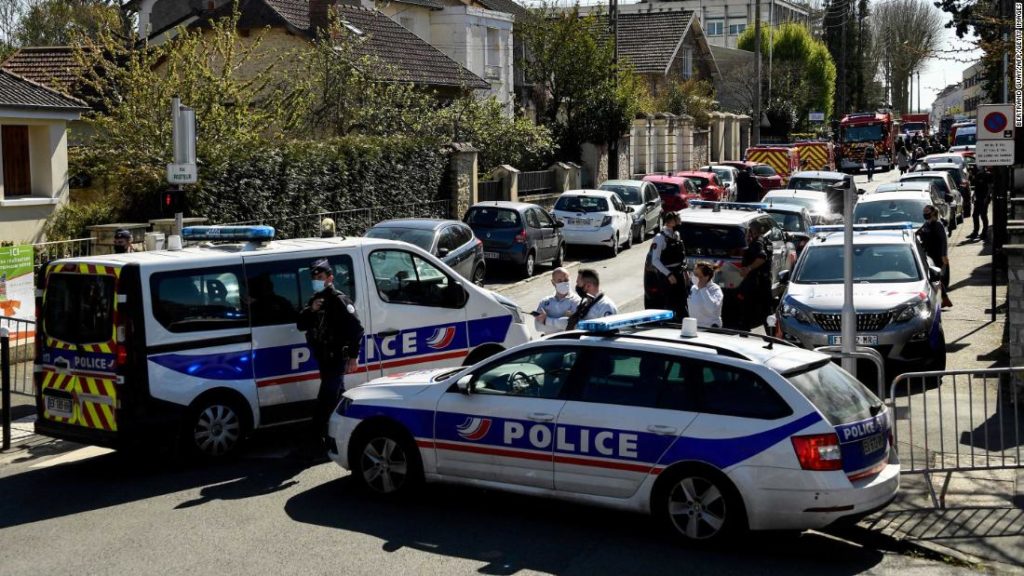Police on the scene quickly intervened and killed the attacker, Prime Minister Jean Castex told journalists on Friday, referring to the incident in Rambouillet as a “terrorist attack.”
Castex said that “our determination to fight terrorism in all its shape is unbroken, more than ever.”
French anti-terrorist prosecutor Jean-François Ricard said, “The way this crime was committed” and “the words said by the attacker during the event” led the anti-terror office to take on the investigation.
The attacker had scouted the location before launching the stabbing, Castex said. And witnesses heard the attacker shout “Allahu Akhbar,” according to a source close to the investigation.
Castex and French Interior Minister Gérald Darmanin said they were on their way to Rambouillet, a town of 25,000 people 35 miles southwest of the capital.
“The Republic has just lost one of its heroines, in an infinitely coward barbaric gesture,” he added.
Reacting to the attack, French President Emmanuel Macron said France would not give up the fight against terrorism.
“She was a police officer. Stephanie has been killed in her police station in Rambouillet, on the already wounded land of the Yvelines. The Nation stands by the side of her family, her colleagues, and law enforcement officers. We will not give up the fight against Islamist terrorism,” Macron said on Twitter.
Attacks intensify debate over French secularism
The attack comes amid an extensive public debate over France’s model of secularism, which has wracked the nation in recent months and is likely to be a key issue in the presidential election next year.
Known as “laïcité” in French, the separation of church and state is the framework of the country’s political system and is deeply ingrained in French culture.
French lawmakers have been working on contentious legislation aimed at combating Islamist radicalism and reinforcing the country’s principle of laïcité, as President Macron attempts to appeal to right-wing voters.
But secularism is divisive in a country as diverse as France, which is home to 5 million Muslims — many of whom live in poorer areas and are often marginalized in politics and media. The vast majority of France’s Muslims do not support Islamic extremism, yet still face unfair stereotypes, experts say.
Critics say the bill, which includes measures that would ban head scarves and other overt religious clothing or symbols, risks discriminating against Muslims.
The bill is currently being scrutinized by a cross-party parliamentary commission.
The wider debate over laïcité and whether it works in modern, multicultural France has been intensified by recent terror attacks.
Macron subsequently issued a strong defense of the principle of freedom of speech and said France would not “give up” the caricatures, which were published in satirical magazine Charlie Hebdo in 2012.
The attacks are the latest in a string of violence linked to the cartoon in France over several years. In 2015, 17 people were killed in a terror attack that began in Charlie Hebdo’s offices in Paris and carried on for three days.
The caricatures are considered blasphemous in Islam, and Macron’s comments triggered widespread anger in many Muslim-majority countries last year.
Antonella Francini contributed to this report from Paris.
You may also like
-
Afghanistan: Civilian casualties hit record high amid US withdrawal, UN says
-
How Taiwan is trying to defend against a cyber ‘World War III’
-
Pandemic travel news this week: Quarantine escapes and airplane disguises
-
Why would anyone trust Brexit Britain again?
-
Black fungus: A second crisis is killing survivors of India’s worst Covid wave

